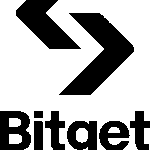A South Korean lawmaker has introduced proposed legislation aimed at creating a regulatory framework for cryptocurrencies, including the legalization of initial coin offerings (ICOs) and guidelines for stablecoin issuance. The initiative, announced by Lee Kang-il, a member of the ruling Democratic Party, seeks to lift the ban on ICOs that was established in 2017 amid a surge in speculative investments commonly referred to as the “ICO boom.” This ban has led many South Korean projects to pursue token launches outside the country. The new bill aims to replace this blanket prohibition with a system centered on transparency and disclosure.
The draft legislation categorizes the digital asset sector as a distinct industry, subdividing it into nine specific business categories, including trading, brokerage, custody, payments, and investment management. Companies engaged in trading and brokerage would be required to obtain licenses, while other activities would follow a registration process. A focus on stablecoins includes a specialized oversight framework, with issuers mandated to maintain a minimum capital reserve of 1 billion won (approximately $717,000) backed by short-term liquid assets. Additionally, stablecoin issuers must undergo internal audits on a monthly basis and external audits annually.
In a different context, Hong Kong-imposed regulations appear to be less accommodating towards firms exploring Bitcoin as a treasury asset. Local firms listed on the Hong Kong Stock Exchange are facing challenges in gaining regulatory acceptance compared to their U.S. counterparts, such as Strategy (formerly MicroStrategy) and Japan’s Metaplanet, both of which have successfully adopted Bitcoin treasury strategies. In a trend noted by finance outlet Caixin, companies experimenting with Bitcoin treasuries have seen mixed results and some skepticism, with concerns raised about using such strategies as mere public relations exercises or attempts to stabilize struggling balance sheets.
In Hong Kong, 12 entities hold Bitcoin, placing the region among the top five globally. Boyaa Interactive and early adopter Meitu have garnered attention as some of the largest publicly traded Bitcoin holders in Asia, although Meitu has since liquidated its crypto holdings. Despite certain successes, an anonymous source indicated that Hong Kong regulators remain cautious regarding crypto treasury initiatives. This attitude reflects the government’s broader disapproval of speculative activities in the wake of its Stablecoin Ordinance, which took effect on August 1. The Hong Kong Monetary Authority has issued warnings against companies engaging in speculative strategies related to stablecoins, although no formal statements have emerged regarding crypto treasury businesses.
Meanwhile, confusion has arisen in China concerning a report suggesting that Shenzhen’s Futian Investment Holdings, a state-owned entity, issued digital bonds worth 500 million yuan (approximately $70 million) on the Ethereum blockchain as part of a real-world asset program. Initial reports from major local media and subsequent coverage by crypto news outlets hinted at a significant development, but those announcements have been removed from the company’s website along with its social media accounts, leading to questions in the online community regarding the legitimacy of the issuance.
In Japan, the Financial Services Agency (FSA) has proposed to regulate cryptocurrencies under the existing Financial Instruments and Exchange Act (FIEA). This move is intended to extend protections traditionally afforded to securities to digital assets, responding to an increasing number of retail investors holding crypto. Currently, over 12 million crypto accounts in Japan collectively manage more than 5 trillion yen (roughly $33.7 billion). Under the proposed regulations, token issuers would be subject to disclosure requirements comparable to those for securities, covering areas such as governance and risk. For tokens lacking a clear issuer, like Bitcoin, the responsibility for disclosures would shift to the exchanges facilitating their trade. Exchanges would also need to comply with licensing and operational standards applicable to securities trading platforms.
By encompassing cryptocurrencies within the FIEA framework, the FSA aims to ensure fair market practices and bolster investor safeguards, although it clarifies that cryptocurrencies will not be classified as securities under the current legal framework, as they do not bestow legal entitlements or income potentials.






